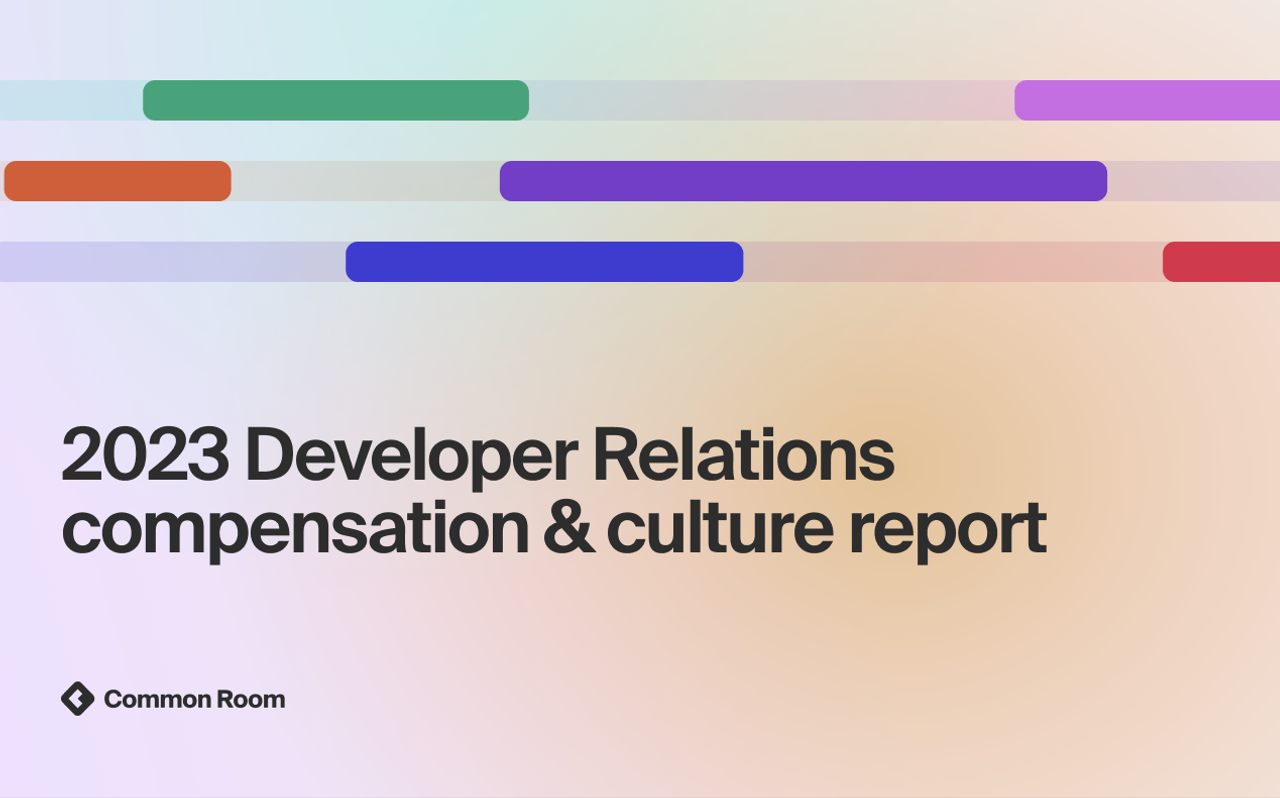Today, we're excited to publish the 2023 Developer Relations compensation & culture report, produced with special thanks to industry leaders and the 136 DevRel professionals who shared their experiences with us through this year’s survey.
This is our second Developer Relations-focused report. Last year, our 2022 report centered on compensation. This year, we included additional analysis around roles and responsibilities, business impact and success metrics, and personal wellbeing to better understand trends around the multiple aspects that shape the experience of individuals within the industry.
What we found
Respondents represent a mix of identities, industries, geographies, organizational structures, team sizes, and experience level. They also report a mix of primary responsibilities, business objectives, success metrics, and mechanisms for improved wellbeing within their roles. To dig deeper into each of these, read the full 2023 report for free.
Across all industries and geographies, the median total gross compensation, pre-tax, for Developer Relations professionals in 2023 is equivalent to $175,000 USD.

Creating educational content and resources remains the top responsibility for DevRel professionals and, for a majority of them (58.6%), their work is in service to a primary business objective: product awareness.
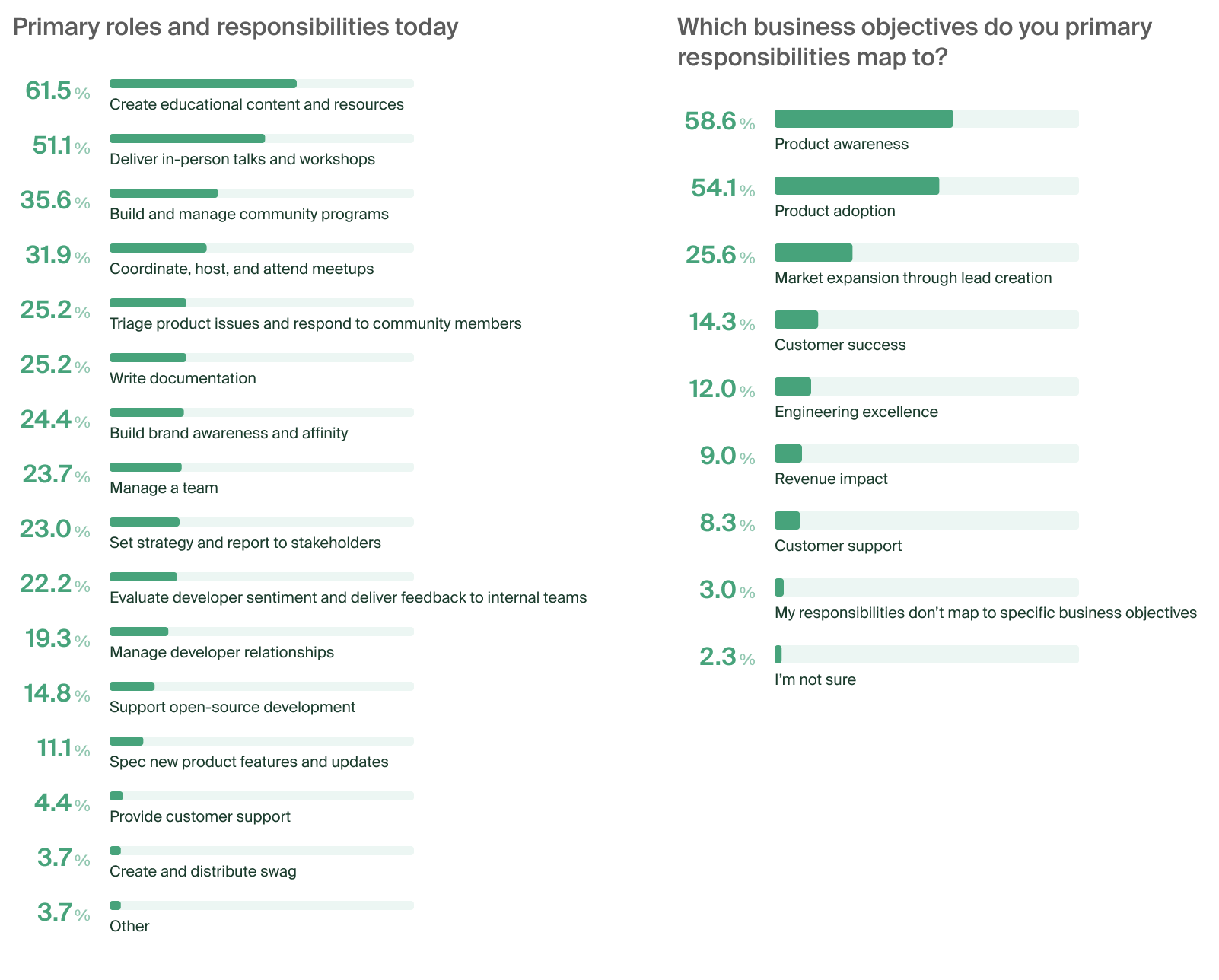
Notable findings include data around team composition, wellbeing, and work-life balance. While layoffs have affected many professionals in both tech and Developer Relations, 73.9% of respondents reported that their teams did not experience layoffs in the past 12 months, and 29.9% of those teams had, in fact, grown.
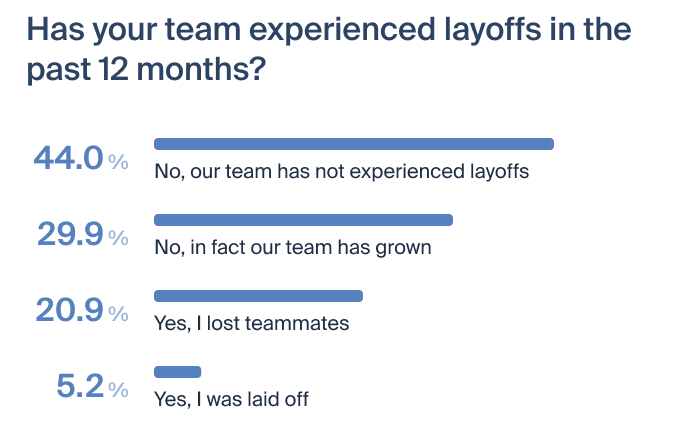
In terms of wellbeing, initial findings indicate that there’s work to be done. Within the past year, 67.1% of respondents reported experiencing burnout, 41% of whom are still working through it or have not yet addressed it—individuals in highly senior positions report experiencing burnout at much higher rates than their peers with less senior titles (70.6% for principal, staff, VP, and chief-level positions vs 30% for less senior titles). For those who perceive Developer Relations to be “not very important” in the eyes of their organization, more than 90% of them report experiencing burnout.
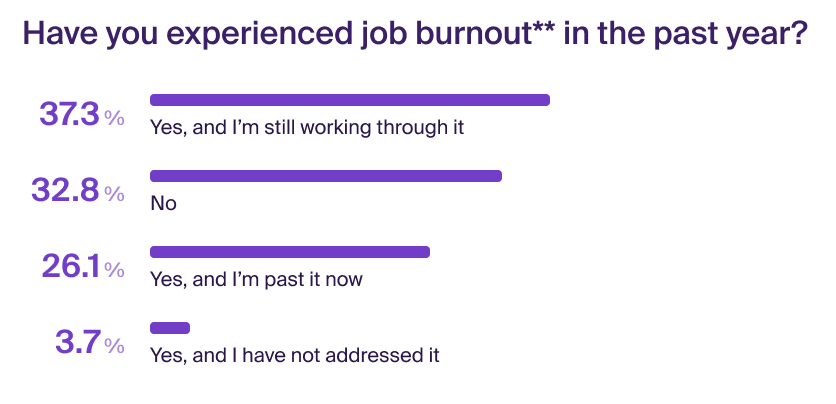
We asked DevRel professionals about the kinds of changes that would improve their physical, mental, and emotional wellbeing in the role. In sum, respondents seek mechanisms that contribute to greater clarity and transparency around their role, performance, and expectations, including access to data that shows their role’s business impact (53.8%), clearer goals and objectives (35.6%), and right-aligned performance and expectations (27.3%). They also seek appropriate resourcing, whether via increased headcount (47.7%) or decreased volume of deliverables (9.8%), as well as organizational recognition of the importance of their function (43.2%).
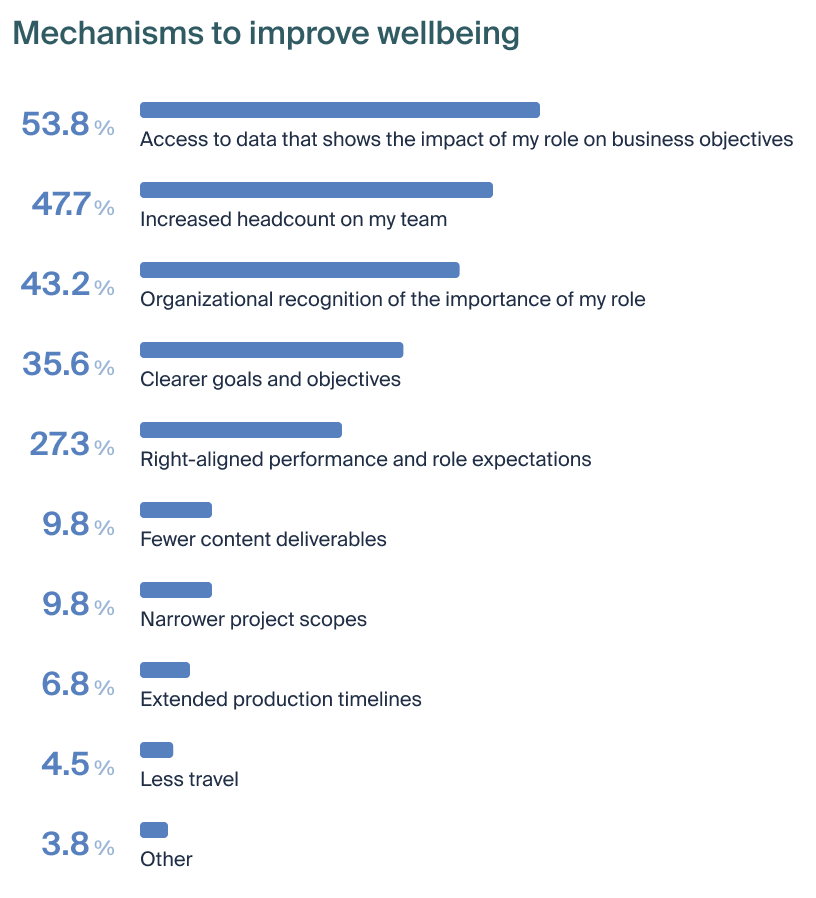
We’ve got more work to do
This is our second annual report, and we’ve got more work to do. This year, we’re proud to represent a more global cohort of respondents. Next year, we hope to both increase our globality and our raw number of respondents. As we note in our report, Developer Relations professionals are, in fact, everywhere, including regions like Oceania and Africa—it’s our goal to include more of their voices in subsequent reports.
When we published our 2022 report, you gave us feedback about things like including compensational range data in addition to median data. This year, we’re glad to offer range data alongside median data. Next year, we look forward to incorporating feedback you’ve offered us already through the 2023 survey—some of you noted our tendency to use American-specific language and others requested more representation and specificity around different areas of focus within DevRel.
The last section of this year’s report highlights the feedback you gave us on our 2023 survey. While it’s not illuminating in the same way the data around compensation and wellbeing is, it’s one of the sections I’m most proud of—we consider feedback a gift and we’re grateful you shared yours with us.
Ultimately, our 2023 report continues to set the stage for more data collection and analysis in the future. In subsequent reports, we look forward to representing more voices and experiences to better compare, inform, and evaluate the profession’s growth, gaps, and trends. Today it’s our humble hope that, with this report as a resource, Developer Relations professionals will be able to better understand not only how to approach discussions about compensation, but also discussions about culture and personal wellbeing in the role.
🥑
For more, read the full 2023 report.
The 2023 Developer Relations compensation & culture report is produced with special thanks to every DevRel professional who shared their experience with us, and to Mary Thengvall, Tessa Kriesel, Shawn Wang, Ahmad Awais, Wesley Faulkner, PJ Hagerty, Ed Finkler, Matty Stratton, Daniel Reis, the DevRelX team at SlashData, and the DeveloperRelations.com team at Hoopy for their feedback on survey design, their help in distributing the survey to DevRel leaders around the world, and their input on the final report.
To connect with thousands of DevRel and community leaders around best practices for building community and driving business impact, join our Uncommon community on Slack.
